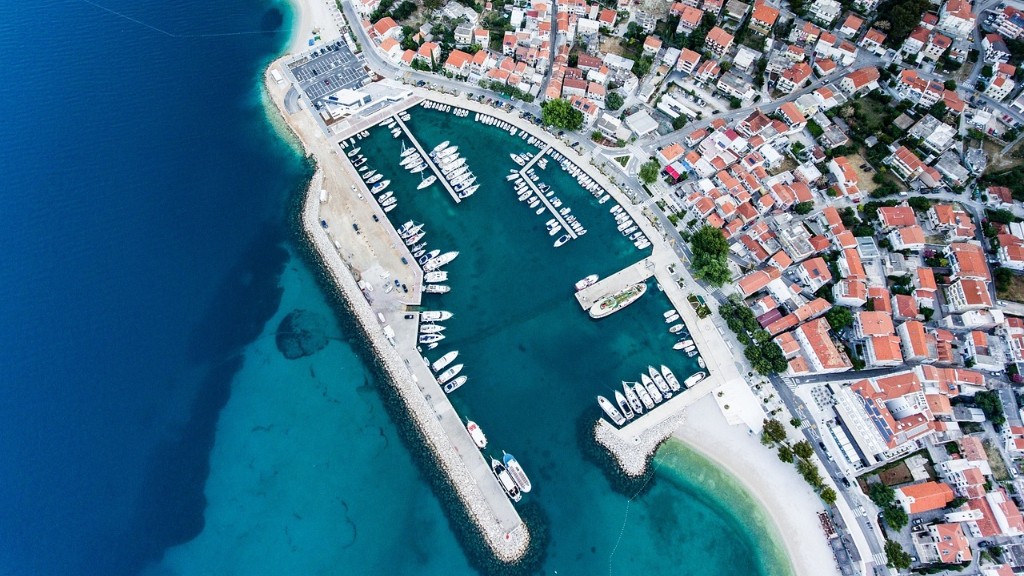Is Croatia More Expensive With Euro
Located in Central Europe, Croatia is a popular tourist destination that attracts millions of visitors every year with its unmatched beaches, picturesque nature, and rich cultural history. Croatia is known for its low cost of living, and while the country doesn’t yet use the Euro as its official currency, the increasing number of tourists visiting the country means that it is becoming increasingly popular among travelers and foreign currency users. Over the last few years, more and more tourists have been paying for their purchases in Euro and, because of this, many people are wondering if Croatia is more expensive with Euro.
To answer the question, the first factor to consider is the exchange rate between the Croatian kuna and the euro. Currently, the rate of exchange between the two currencies is not particularly favorable, and many visitors to Croatia are finding that they are paying more for goods when using euro than when using the local currency. This is mainly due to the current strength of the euro, which makes it difficult for Croatian businesses to match their prices with those of other countries that use the same currency.
The second factor to consider is the cost of goods in Croatia itself. Although Croatia is known for its low cost of living, its prices can still vary greatly depending on the region and type of goods you are looking to buy. Generally, there is a bigger markup on imported products, so if you are looking for luxury and convenience, it is likely that you will pay more for these items than in other countries.
In addition, there is the question of whether or not merchants in Croatia are more likely to accept euros than other forms of currency. Generally, the answer is yes, as it is easier to exchange euros for kuna than other currencies. However, it is also important to be aware that some merchants may not accept euros, or offer a less favourable exchange rate than other merchants.
Finally, you should be aware that any fees associated with exchanging currency or paying with a credit or debit card could also add to the cost of your purchases. For example, using a credit or debit card issued in a non-euro currency may incur higher fees than those associated with a euro based card.
Travel Costs
While some people may find that paying in euros offers convenience, it is important to consider the overall cost of travel before choosing a currency. If you are travelling outside of the eurozone, it is likely that your expenditure in euro will be higher than in other forms of currency, as it is only accepted in certain countries. Also, if you require a currency exchange service while travelling, the fees you will be charged will be higher than the fees associated with other currencies.
On the other hand, if you are travelling within the eurozone, it is likely that you will find that the cost of travel is lower when using euro. This is because people can buy travel tickets, book hotels, and purchase goods in other countries without having to worry about currency exchange fees. Furthermore, it is often possible to get discounts on goods and services when using euro.
Overall, it is difficult to determine whether it is more economical to use euro in Croatia or not. Ultimately, the best approach is to weigh up the costs and benefits of using euro before deciding which currency to use.
Retail Shopping
In terms of retail shopping, paying in euros is generally more economical than other forms of currency. Not only is the exchange rate more favourable in euro, but also there are a number of retailers and online stores that offer exclusive discounts for purchases made in euro.
In addition, when paying with euro you can often benefit from lower taxes and customs duties. This is because the European Union has some preferential trade agreements with certain countries, which allow businesses to pass on savings to their customers by charging lower prices in euro.
Overall, it is clear that paying in euro can be more economical for both travelers and retail customers in Croatia. From reduced costs to easier access to certain goods and services, those who pay with euro can benefit from a number of advantages.
Safety Considerations
While paying in euro is generally the safer and more economical choice in Croatia, it is important to be aware of some of the risks associated with using euro. Firstly, there is the risk of theft, as criminals may be more likely to target those who are paying in euro because they know how much money they are carrying. Conversely, if you are using another currency, such as the Croatian kuna, criminals may not know how much money you are carrying.
The second risk is that, as the euro is accepted in multiple countries, it can be more difficult to track payments and trace where money has gone. This can be a problem for victims of fraud, or those who have been scammed in a foreign country because, without an adequate paper trail, it can be difficult to get your money back.
Furthermore, it is also important to be aware of the potential for fraud. Although most retailers are trustworthy, there are some who may try to take advantage of customers by offering poor exchange rates or charging extra fees. For this reason, it is important to always do your research before exchanging money, and to be aware of any hidden costs or fees that merchants may be charging.
Cost Benefit Analysis
In conclusion, it is clear that there are both advantages and disadvantages to using euro in Croatia. For travelers, there are often discounts to be had, and it is often more convenient than other forms of currency. However, there are also risks associated with using the euro, such as the risk of theft or fraud, so it is important to weigh up the costs and benefits before deciding which currency to use.
Fluctuating Exchange Rates
One factor to consider when deciding whether to use euro in Croatia is the fluctuating exchange rate between the Croatian kuna and the euro. The value of the euro has been steadily increasing over the past few years, so it is important to be aware that the rate of exchange can vary depending on the time of year and the current economic climate.
The second factor to consider is the cost of goods in Croatia itself. Prices in the country are generally quite low, but certain services such as travel and imported goods may be more expensive, meaning that it can be more expensive to pay in euro than in other forms of currency.
In addition, it is important to remember that certain merchants in Croatia may not accept euro, or may offer a less favourable exchange rate than other merchants. Furthermore, transactions involving euro may be subject to higher fees than those associated with other currencies.
Overall, it is important to be aware of the potential costs and benefits associated with using euro in Croatia, as well as the risks associated with using the currency. With this in mind, the most important thing is to always consider your options before deciding which currency to use.
Tax Implications
Finally, it is important to mention that there may be tax implications to consider when using euro in Croatia. Generally, purchases made in euro are not subject to VAT in Europe, and there may also be other tax reductions available depending on the type of goods or services you are buying. However, it is important to check with local authorities to make sure you are aware of any applicable taxes.
In conclusion, it is clear that there are both advantages and disadvantages to using euro in Croatia. From reduced costs to easier access to certain goods and services, those who pay with euro can benefit from a number of advantages. However, there are also risks associated with using the euro, such as the risk of theft or fraud, so it is important to weigh up the costs and benefits before deciding which currency to use.





